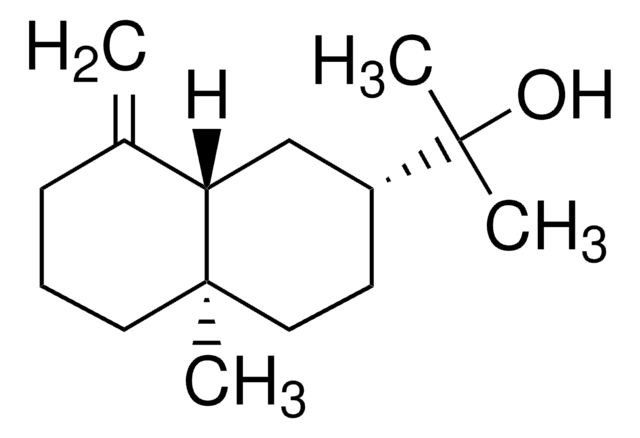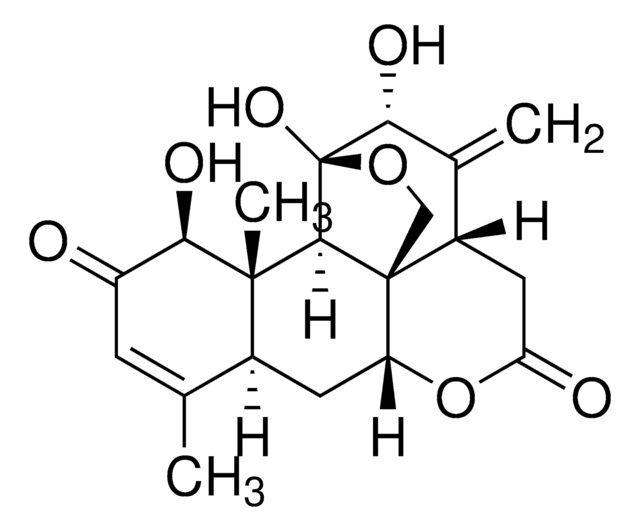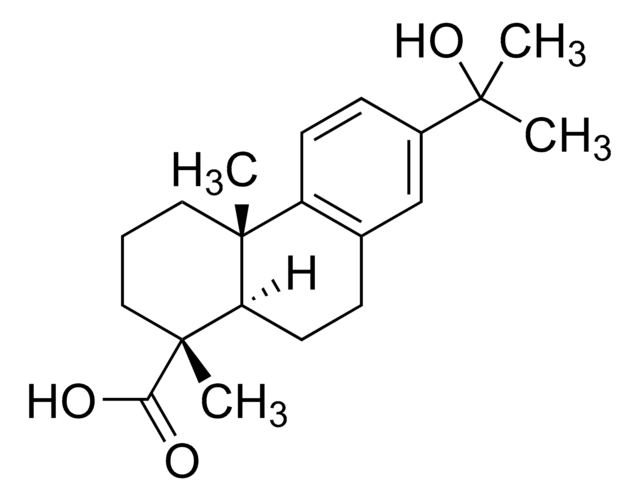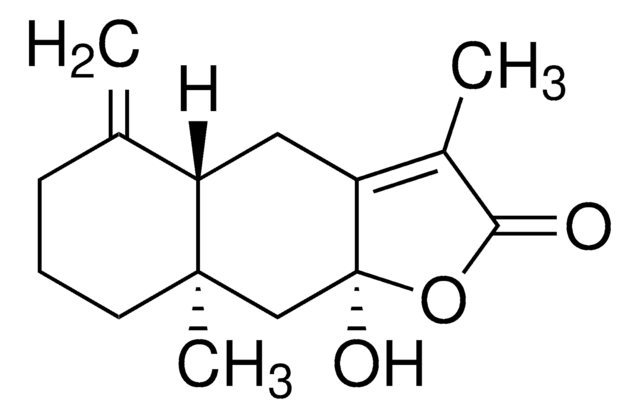SMB01000
Grandiflorenic acid
≥90% (LC/MS-ELSD)
Sinónimos:
(4S,5R,9R)-5,9-Dimethyl-14-methylidenetetracyclo[11.2.1.01,10.04,9]hexadec-10-ene-5-carboxylic acid, Kaura-9(11),16-dien-18-oic acid
About This Item
Productos recomendados
biological source
plant
assay
≥90% (LC/MS-ELSD)
form
solid
mol wt
300.44
solubility
water: slightly soluble
application(s)
metabolomics
vitamins, nutraceuticals, and natural products
storage temp.
−20°C
InChI
1S/C20H28O2/c1-13-11-20-10-7-15-18(2,16(20)6-5-14(13)12-20)8-4-9-19(15,3)17(21)22/h6,14-15H,1,4-5,7-12H2,2-3H3,(H,21,22)/t14?,15-,18+,19+,20?/m0/s1
InChI key
RJIPNPHMQGDUBW-MZWQVCBVSA-N
Categorías relacionadas
General description
Application
Biochem/physiol Actions
Grandiflorenic acid shows moderate cytotoxic (IC50 15μM in RAW264.7 cells) and antiplasmodial activities (IC50 23μM against P. falciparum).
Features and Benefits
- High quality compound suitable for multiple research applications
- Compatible with HPLC and mass spectrometry techniques
Other Notes
Storage Class
11 - Combustible Solids
wgk_germany
WGK 3
flash_point_f
Not applicable
flash_point_c
Not applicable
Certificados de análisis (COA)
Busque Certificados de análisis (COA) introduciendo el número de lote del producto. Los números de lote se encuentran en la etiqueta del producto después de las palabras «Lot» o «Batch»
¿Ya tiene este producto?
Encuentre la documentación para los productos que ha comprado recientemente en la Biblioteca de documentos.
Nuestro equipo de científicos tiene experiencia en todas las áreas de investigación: Ciencias de la vida, Ciencia de los materiales, Síntesis química, Cromatografía, Analítica y muchas otras.
Póngase en contacto con el Servicio técnico








